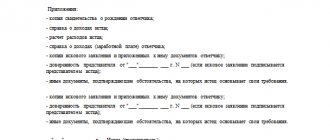According to the current legislation of the Russian Federation, guardianship and trusteeship authorities must protect the rights of minor citizens, as well as children under guardianship. Their responsibilities include monitoring guardians and persons who intend to adopt a child. These government bodies also perform other important tasks.
If the guardianship authorities exceed their powers (for example, take a bribe), you need to immediately write a complaint against such employees. If other claims arise, a citizen of the Russian Federation has the right to contact the relevant authorities with a statement that the authorized person is not coping well with his main responsibilities. So where can you complain about the guardianship authorities?
Complaint to the guardianship authorities
Any citizen, both a relative and a complete stranger, can contact the guardianship and trusteeship authorities with a complaint about a violation of the rights of a minor.
However, not everyone knows under what circumstances and where one can complain about the actions of persons who pose a threat to the life and health of a child or in any way violate his interests. The main reasons for contacting the guardianship authorities may be:
- neglect of needs - lack of proper living conditions, necessary things, food;
- abuse - psychological, physical, sexual violence against a child (which can be signaled by constant crying of children, injuries, emaciated appearance);
- abuse of parental rights - creating obstacles for a child’s communication with the second parent, forcing him to take actions that have adverse consequences;
- being left in danger - unattended at home or in public places;
- living with parents who have alcohol or drug addiction;
- violation of property rights.
If a citizen becomes aware of a violation of a child’s rights, he must contact the guardianship department at the minor’s place of residence, providing all available information about the child and his parents. As a rule, guardianship departments are located at the local government bodies of each municipality.
You can complain to the guardianship department in several ways:
- phone call;
- appeal in electronic form;
- written appeal;
- personal appointment.
Employees of the guardianship department, in accordance with Article 12 of the Federal Law of May 2, 2006 No. 59-FZ “On the procedure for considering appeals from citizens of the Russian Federation,” are required to consider it within 30 days from the date of registration of the appeal and send a response to the applicant.
Reference! In addition to the guardianship department, you can also report a violation of the rights of a minor to the educational institution where he is studying, or to a medical institution. If the information is confirmed, officials of these organizations are required to report this to the guardianship.
On the neighbors
Often, people living nearby witness parents’ improper performance of their duties. Residents of an apartment building can regularly hear parents screaming and children crying, as well as have information about the family's lifestyle.
You can complain about the infringement of the rights of a minor by your neighbors if you only have information about their residential address. Employees of the guardianship department are obliged, upon receiving a signal, to check his living conditions and, if necessary, take measures to protect his rights.
On the mother
A complaint against the child’s mother about abuse of parental rights or infringement of his rights can be filed by the father, relatives, other persons, as well as employees of educational or medical organizations who have become aware of such information.
Often, after the divorce, children remain with their mother and subsequently she prevents them from meeting with their father, and therefore the ex-husband is forced to contact the guardianship department to try to resolve the conflict out of court. But if the officials were powerless, then the issue of communication with the father can only be resolved in court.
The guardianship does not consider complaints from former spouses about the spending of alimony payments for other purposes. Such issues are resolved by parents among themselves or in court.
On father
The father can also take on the role of a parent who prevents the child from communicating with the other parent. If there is a chance to reach an agreement without going to the courts, then the child’s mother can contact the guardianship department to try to resolve the dispute peacefully.
There are often cases when fathers may use physical force against their children for educational purposes. The mother should first of all report this, and not remain silent about such a situation in the family.
For guardian
Current legislation entrusts the guardian (trustee) and adoptive parent with the same functions of raising a child as parents. At the same time, the state, represented by the guardianship and trusteeship authority, strictly monitors the proper performance of their duties.
However, any individual or official can report failure to fulfill the duties assigned to the guardian. A guardian may also be found to have abused a minor, violated his property rights in terms of disposing of his maintenance allowance or property belonging to him. In addition, the guardian's abuse of alcohol may also serve as a basis for sending a complaint against his actions to the guardianship.
For children
The result of parents’ improper performance of their responsibilities in raising children is very often their behavior. Complaints from citizens or educational organizations may be received against minors, usually teenagers, and are related to skipping classes, drinking alcohol and other inappropriate behavior.
In this case, parents will bear responsibility for the behavior of children. The complaint may be sent to the guardianship authority or the commission for minors. In this case, parents or legal representatives will be held administratively liable under Article 5.35 of the Code of Administrative Offenses of the Russian Federation for failure to fulfill their duties in raising a minor.
Who can become an adoptive parent
Citizens of Russia or other countries can register for adoption. The exception is US citizens. For them, the adoption of Russian children is prohibited.
Persons who meet the requirements for adoptive parents have the right to adopt a child. Thus, in accordance with legislative norms, adoptive parents can be men and women. The exception is the following circumstances:
- recognition as incompetent or partially capable by a decision of a judicial authority;
- deprivation or restriction of parental rights by court decision;
- removal from duties of a guardian or trustee due to improper fulfillment of undertaken obligations;
- cancellation of adoption in the past due to the fault of the adoptive parent;
- lack of permanent income that provides the child with the subsistence minimum established in the region of the Russian Federation;
- lack of permanent residence;
- a criminal record or current criminal prosecution for unlawful acts directed against life, health, freedom, honor and dignity of the individual, sexual integrity or freedom, public safety, public health and morality;
- the presence of an unexpunged or outstanding conviction for committing serious or especially serious crimes;
- lack of training for adoptive parents (with the exception of close relatives of the child, current adoptive parents or guardians of other children);
- participation in a same-sex union that took place in a state where such marriages are permitted;
- having citizenship of a country that allows same-sex marriage, in the absence of a registered marriage with a person of the opposite sex.
The health status of the potential adoptive parent also matters. The list of diseases, the presence of which does not allow the provision of child custody, was approved by Decree of the Government of the Russian Federation dated February 14, 2013 No. 117:
- tuberculosis of the respiratory system in persons who belong to groups I and II of dispensary observation;
- infectious diseases until dispensary observation is terminated due to stable remission;
- malignant neoplasms of stages III and IV;
- malignant neoplasms of stages I and II before treatment;
- mental disorders until the end of dispensary observation;
- drug addiction, alcoholism, substance abuse;
- diseases and injuries that led to group I disability.
Citizens wishing to become adoptive parents or guardians undergo a mandatory medical examination.
The adoption of one child by persons who are not legally married is not permitted. However, they have the right to adopt children separately. Then the second partner in the union will not have any rights to the child.
The law provides for a minimum age difference between the adoptive parent and the adopted child. She is 16 years old. If there are good reasons, this difference may be reduced by court decision. The rule does not apply to the situation when the child’s stepfather or stepmother is involved in the adoption.
If there are several persons wishing to adopt a child, the priority right is given to his relatives. In this case, the court may neglect some of the criteria imposed on adoptive parents if the child already lives with the applicant as a result of the circumstances that have arisen in this way.
When a child has one parent, adoption is only possible if the applicant is married to him or her. In this case, the parent must give his consent to the adoption.
Complaint against guardianship authorities
The guardianship authorities of municipalities, which directly interact with citizens in the exercise of powers to protect the rights and legitimate interests of children, are controlled by the regional executive authority authorized in this area.
This could be the Ministry/Department of Education or Social Welfare. At the federal level, control over the activities of guardianship and trusteeship bodies of the constituent entities of the Russian Federation is carried out by Rosobrnadzor (federal service for supervision in the field of education and science). This service has the right to conduct inspections of the activities of guardianship authorities, consider complaints about their activities, and also monitor the elimination of identified violations.
To action or inaction
The main task of the guardianship authorities is to protect the rights of minors. But if citizens consider the actions (inaction) of officials to be unlawful, they can file a complaint with the regulatory authorities.
Thus, the following actions of guardianship department employees can be appealed:
- failure to take measures upon receipt of information about a violation of a child’s rights (within 3 days, guardianship authorities are required to conduct an inspection at the child’s place of residence, if there is a threat to life and health - immediately);
- improper control over the activities of guardians, trustees, and adoptive parents;
- removal of a child from a family without legal grounds (in the absence of a threat to life or health);
- failure to take measures to improve the life of a minor left without parental care;
- illegal restriction of the rights of parents who have not been deprived of parental rights to communicate with the child.
This list can be supplemented by any actions that violate the rights of children and their parents.
For improper performance of official duties, abuse of their powers, as well as harm caused as a result of unlawful actions, employees of guardianship authorities bear civil, administrative, and criminal liability.
To the prosecutor's office
The prosecutor's office is the body that supervises the implementation of legislation, observance of human and civil rights and freedoms by authorities at various levels, including guardianship and trusteeship authorities.
Upon receipt of a complaint, the prosecutor's office conducts an appropriate investigation and, if the facts stated in the appeal are confirmed, takes measures to bring guardianship officials to justice.
Concept of improper child rearing
The rights and responsibilities of parents are regulated by Art. 63 and 64 RF IC.
According to them, until the child reaches adulthood, they must:
- bear full responsibility for their development and education;
- take care of mental, physical, moral and spiritual development;
- provide food, treatment, clothing, and general education;
- protect the interests of minors before government and commercial institutions.
Based on the above, improper upbringing of children means a violation of at least one point:
- creating obstacles to obtaining education,
- amoral behavior,
- fostering an asocial perception of the world and others.
There is no exact wording in the legislation.
Is it possible to submit an anonymous complaint to the guardianship authorities?
Citizens who report violations of children's rights to the guardianship department often want to remain anonymous, because they live next door to the violators or are directly acquainted with them and do not want to have negative consequences for their family.
The guardianship department must consider any complaint containing such information, including anonymous ones. An applicant who does not want to disclose his identity can contact the guardianship department by all available means - by telephone, by e-mail, by post. Employees will check the living conditions of the child at the address indicated in the application and, if necessary, take appropriate measures to protect his rights. However, if the applicant wished to remain anonymous and did not indicate his data, he will not receive a response about the measures taken.
Attention! If there is an immediate threat to the life and health of the child, it is better to notify the guardianship about this by means of a telephone call, since the time lost in sending a written appeal may cost the child’s life.







